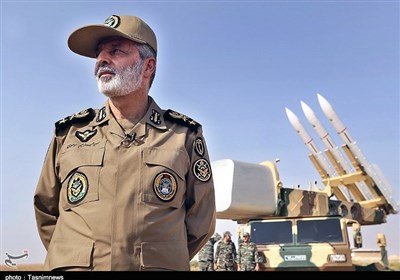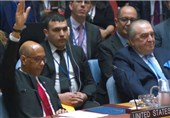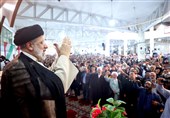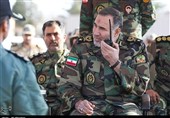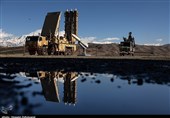UN Chief Says Saudi Air War Taking Heavy Toll on Yemeni Children
TEHRAN (Tasnim) – United Nations Secretary General Ban Kimoon said he has ongoing concerns about abuses of children in Yemen and stands behind an earlier report claiming that the Saudi-led military coalition in Yemen was responsible for some 60 percent of the 1,953 child deaths and injuries there.
Nearly two months ago, United Nations Secretary General Ban Kimoon bowed to threats by Saudi Arabia to cut hundreds of millions of dollars in UN funding unless it removed Riyadh from a blacklist of armies, rebels, and terrorists that maim or kill children in conflict zones.
On Tuesday, Ban pushed back, telling delegates at a special UN Security Council session on the plight of children in armed conflict that he has ongoing concerns about abuses of children in Yemen.
The United Nations, he added, stands behind its claim that the Saudi-led military coalition in Yemen was responsible for some 60 percent of the 1,953 child deaths and injuries there during the past year. The Houthis, who have engaged in the extensive recruitment of child soldiers, is responsible for most of the remaining casualties, according to the UN.
Ban, who met in late June with Saudi Arabia’s powerful deputy crown prince, Mohammed bin Salman, made it clear that Saudi Arabia has yet to convince the UN that it is innocent of the charges. He also stressed that the UN is continuing to hold discussions with Saudi Arabia over the coalition’s conduct in Yemen.
“I have since received information on measures taken by the coalition to prevent and end grave violations against children,” Ban told the Security Council. “I still have very strong concerns about the protection of Yemeni children.”
A Saudi Arabia-led military coalition intervened in Yemen in March 2015, as part of an effort to put to restore power to the country’s fugitive former president, Abd Rabbuh Manosur Hadi. The fighting has left thousands dead and destroyed much of the impoverished country’s infrastructure, inflicting particular pain on its elderly and young.
In May, Ban released a report entitled Children in Armed Conflict that highlighted abuses of children by both sides in the conflict. But it concluded that the Saudi led coalition which possesses some of the most advanced Western-made warplanes and has received support from the Pentagon bears responsibility for the majority of casualties. It also included the Saudi-led coalition in an annex to the report alongside some of the world’s worst human rights offenders, as well as terrorist organizations from al Qaeda to the Daesh (ISIL).
Saudi Arabia reacted angrily to its inclusion in the annex, threatening to break off relations with the United Nations if its name was not removed. Saudi officials protested that the UN chief had a year earlier taken Israel off its blacklist of countries accused of abusing children, and that Saudi Arabia should be accorded the same treatment. “We have to ask the question: why was Israel removed from the list last year?” Saudi Arabia’s UN ambassador, Abdallah al-Moallimi, told reporters in June.
Ban confirmed in June that he was essentially blackmailed into removing the Saudi-led coalition from the blacklist. But he said that the decision was not final, and that he would be willing to give the Saudis a chance to make their case for convincing the UN that their name should not be put back.
At the time, Ban characterized his decision to remove the Saudi coalition the list as “one of the most painful and difficult decisions” in his UN career. But he said he had little choice as he had been threatened with a cut off of hundreds of millions in vital aid funds for the world’s poorest.
While Ban did not directly accuse Saudi Arabia directly of issuing the threat, senior UN officials familiar with the issue confirmed that top Saudi officials, including Saudi Foreign Minister Adel al-Jubeir, had threatened to withhold funding for UN humanitarian and counter-terrorism programs.
On Tuesday, human rights groups pressed the UN leader to stand up to the Saudis and put the country back on the blacklist. “Unlawful airstrikes by the Saudi-led coalition have killed and maimed hundreds of children in Yemen and damaged dozens of schools, but the coalition strong-armed the Secretary General in an attempt to escape scrutiny,” Jo Becker, Human Rights Watch’s advocacy director for children’s rights said in a statement. “The coalition should be returned to the secretary-general’s list of shame until it stops its indiscriminate bombardment of Yemen’s civilians.”
But Saudi Arabia hit back, saying they have been a target of attacks by human rights organizations that “have an axe to grind” with Riyadh. In an address to the Security Council, Moallimi vigorously denied that his country had ever threatened to cut off UN funds or that it was responsible for killing large numbers of children, Foreign Policy reported.
But Ban urged Saudi Arabia and other countries criticized in its reports to focus their efforts on improving conditions for children, rather than on clearing their name. “Let me be clear: the report and its annexes may cause discomfort, but that is not the goal in itself. Our aim is to protect children in danger by ensuring concrete change,” Ban said. “Today I renew my appeal to every member state and every party to conflict: if you want to protect your image, protect children.”


